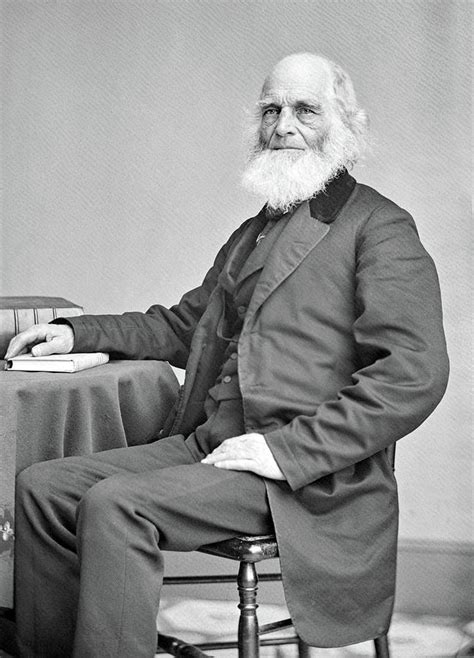A Quote by Thomas Huxley
Mathematics may be compared to a mill of exquisite workmanship, which grinds your stuff to any degree of fineness.
Related Quotes
Mathematics may be compared to a mill of exquisite workmanship, which grinds you stuff of any degree of fineness; but, nevertheless, what you get out depends upon what you put in; and as the grandest mill in the world will not extract wheat-flour from peascods, so pages of formulae will not get a definite result out of loose data.
When I am assailed with heavy tribulations, I rush out among my pigs rather than remain alone by myself. The human heart is like a millstone in a mill: when you put wheat under it, it turns and grinds and bruises the wheat to flour; if you put no wheat, it still grinds on, but then 'tis itself it grinds and wears away. So the human heart, unless it be occupied with some employment, leaves space for the devil, who wriggles himself in and brings with him a whole host of evil thoughts, temptations, and tribulations, which grind out the heart.
Mathematics never reveals man to the degree, never expresses him in the way, that any other field of human endeavour does: the extent of the negation of man's corporeal self that mathematics achieves cannot be compared with anything. Whoever is interested in this subject I refer to my articles. Here I will say only that the world injected its patterns into human language at the very inception of that language; mathematics sleeps in every utterance, and can only be discovered, never invented.
Mystery is an inescapable ingredient of mathematics. Mathematics is full of unanswered questions, which far outnumber known theorems and results. It's the nature of mathematics to pose more problems than it can solve. Indeed, mathematics itself may be built on small islands of truth comprising the pieces of mathematics that can be validated by relatively short proofs. All else is speculation.
A work of art rests its merits in traditional qualities. It may constitute a remarkable feat in craftsmanship; it may be a searching study of psychological states; it may be a nostalgic glance backward; it may be any one of an infinite number of concepts, none of which may have any possible bearing upon its degree of newness.
I do not remember having felt, as a boy, any passion for mathematics, and such notions as I may have had of the career of a mathematician were far from noble. I thought of mathematics in terms of examinations and scholarships: I wanted to beat other boys, and this seemed to be the way in which I could do so most decisively.
The press, important as is its office, is but the servant of the human intellect, and its ministry is for good or for evil, according to the character of those who direct it. The press is a mill which grinds all that is put into its hopper. Fill the hopper with poisoned grain, and it will grind it to meal, but there is death in the bread.
You have this world of mathematics, which is very real and which contains all kinds of wonderful stuff. And then we also have the world of nature, which is real, too. And that, by some miracle, the language that nature speaks is the same language that we invented for mathematics. That's just an amazing piece of luck, which we don't understand.



































